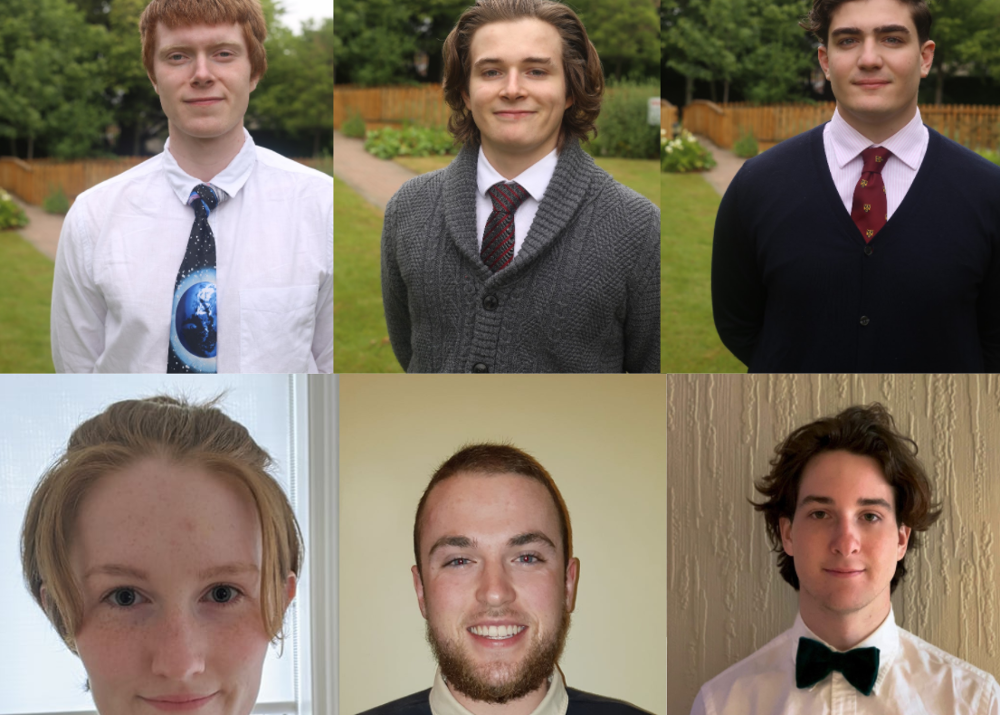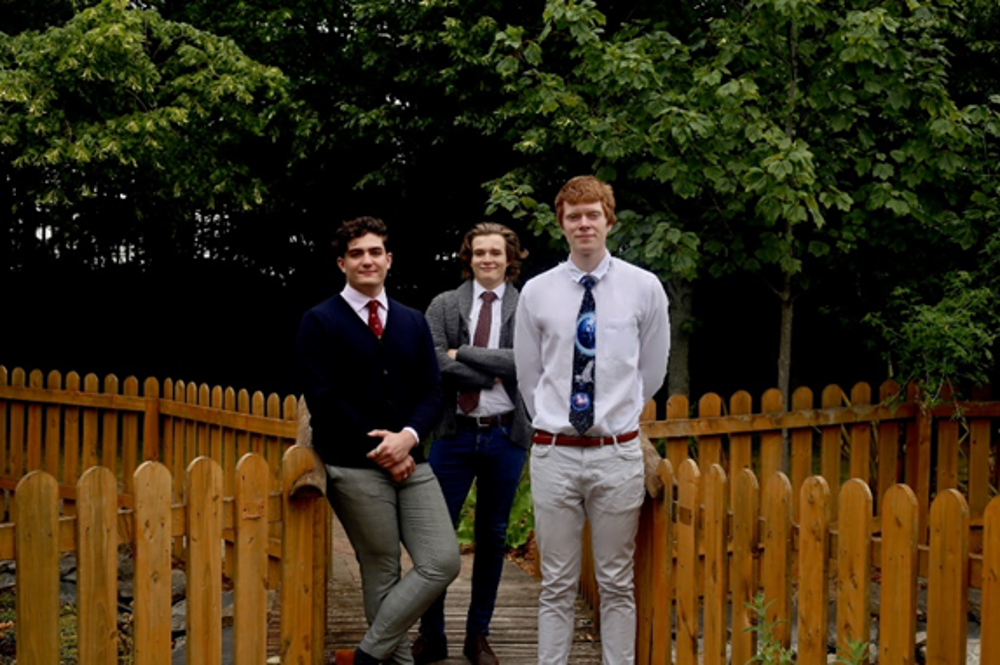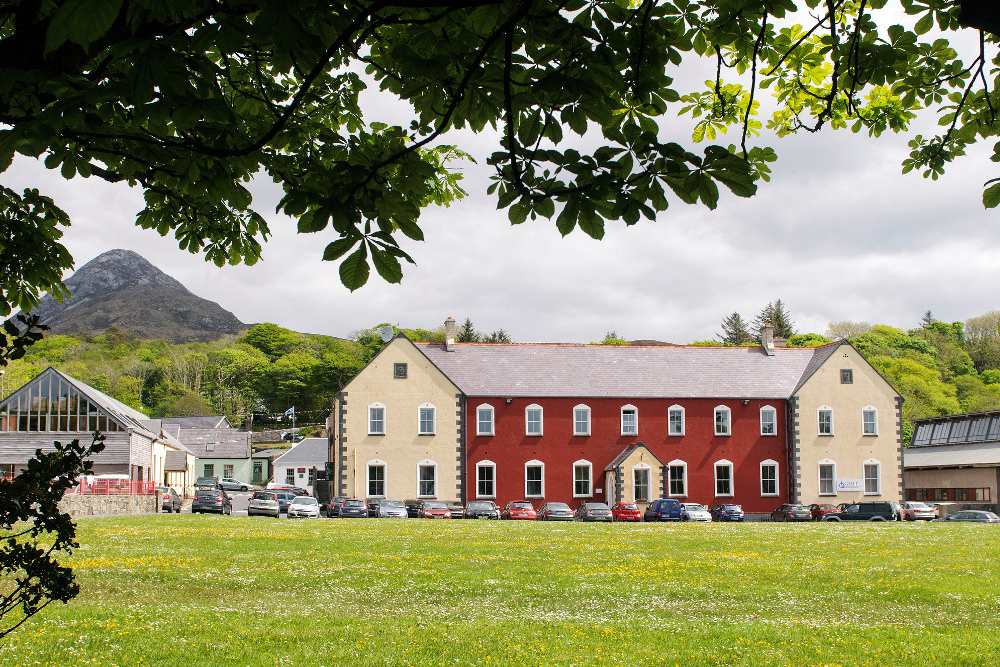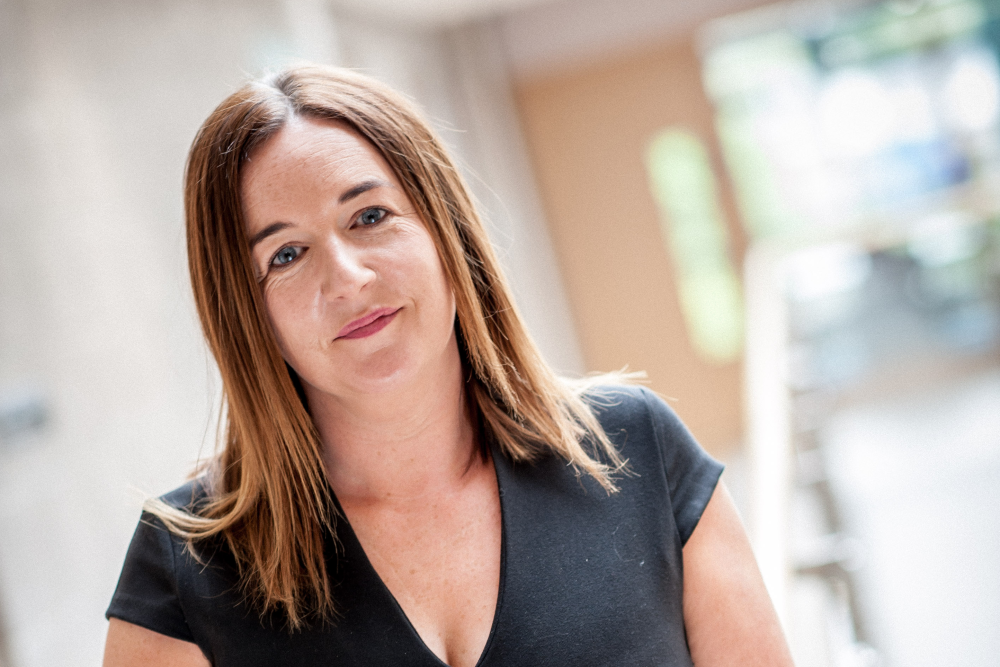Trinity College LaunchBox accelerator firm FiltraCycle aims to recycle 10pc of Europe’s cigarette butts by 2025 into cellulose acetate pellets.
FiltraCycle is unequivocal in its determination to stamp out the harmful effects of cigarette litter. “6.5trn cigarette butts end up as litter each year. They are the most common item of litter on the planet and the most common form of ocean plastic,” laments co-founder Liam Lysaght, who is also an engineering student at Trinity College Dublin.
The company was one of 10 start-ups that took part in the LaunchBox accelerator. LaunchBox, in partnership with Bank of Ireland, and managed by experts in Tangent, Trinity’s Ideas Workspace at Trinity College Dublin, provides mentorship, funding, access to alumni and investors, and the ideal collaborative environment to launch new start-up ventures. This is the eighth year of LaunchBox, but the first year that the programme is running online.
“We have also developed our own range of sunglasses made from our recycled plastic as a proof of concept product”
“A single cigarette butt can break down into more than 12,000 particles of microplastic, which are consumed by plankton and accumulate up the marine food chain,” says Lysaght.
“Plankton that have consumed microplastics become buoyant, and don’t sink to the seafloor when they die. This damages the ocean’s ability to act as a carbon sink. Cigarette butts also give off greenhouse gasses and leach toxic chemicals into our soil and water, poisoning plants and animals. Flicking used cigarette butts onto the street and into storm drains is the only socially acceptable form of litter, which is unacceptable, as cigarette butts are not biodegradable and are among the most toxic forms of waste the average person can produce.”
No butts, there is a cleaner way
FiltraCycle’s solution to the problem of cigarette waste is to recycle cigarette butts into plastic pellets, that can be used to manufacture sustainable products.
“Cigarette filters are made from cellulose acetate, which is the thermoplastic found in designer sunglasses. We have developed a method for extracting this plastic from cigarette butts at industrial scales.
“Our plastic pellets will be sold B2B to manufacturers who are already using injection moulding looking for a more environmentally friendly plastic source. The current global market size for rigid plastics is $216.8bn and the recycled plastics market is $36.9bn, amounting to 7.7m tonnes a year.”
Don’t fling it, bin it

(Top row) Liam Lysaght, Marc Bollée and Harry Jankola; and (bottom row) Eimear O’Connor, Damian Mulhern and Rory McMahon.
As Lysaght explains, FiltraCycle’s business model has two main sources of revenue.
“Waste collection companies and venues pay us for the service of recycling their cigarette waste. The plastic pellets we create are then sold to brands and manufacturers to be used in making their own products. We install cigarette receptacles called ‘FiltraBins’ in pubs, venues, airports and any densely populated areas that accumulate cigarette litter. We then collect the cigarette waste from these receptacles and recycle it into clean cellulose acetate plastic pellets.
“These plastic pellets are FiltraCycle’s core product. We sell the pellets to manufacturers who are using injection moulding and are looking for a more environmentally friendly source of plastic. We have also developed our own range of sunglasses made from our recycled plastic as a proof of concept product.
“They will be sold B2C through our website: www.filtracycle.com.”
Flair for problem-solving

From left: FiltraCycle founders Harry Jankola, Marc Bollée and Liam Lysaght
The three co-founders of FiltraCycle are Liam Lysaght, Marc Bollée and Harry Jankola.
“We all attended school together and wanted to establish a business together,” says Lysaght.
Lysaght grew up in a family of entrepreneurs and has been attempting to start a company since he learned to talk, while Jankola has had work experience in Goldman Sachs and the New York stock exchange and developed his flair for business as a teenager. Bollée always possessed a passion for mathematics and chemistry.
“After exploring various different business options, we decided to start FiltraCycle to use our business as a medium to solve environmental problems rather than create them.”
Roses and thorns
As Lysaght sees it, the start-up ecosystem in Ireland is incredibly supportive, but also very competitive.
“There is a very social and positive atmosphere to all of the start-up accelerators that we have been involved in and everyone is always very keen to help each other succeed. There is support available, but you need to compete for it. There is a level of healthy competition between start-ups within accelerators such as Trinity LaunchBox.”
So far FiltraCycle has raised €75,000 through its participation in Launchbox, participation in the EU’s
Climate Kic Accelerator and from pilot funding.
“We will be raising a seed round of €500,000 in early 2021 to fund our first commercial scale recycling facility.”
Lessons starting out
To stay agile, the founding team make use of available cloud technologies.
“We use Zoom quite frequently. We have divided our team members into a Development Team and a Revenue Team, and the members of each team are in constant communication over social media. We have Zoom meetings with each team at least once if not twice a week in order to stay on top of our tasks and adequately delegate work.”
Fast learners, Lysaght admits: “The biggest mistake we have made so far is not applying for start-up support sooner. Programmes such as Climate Kic and LaunchBox have enabled us to excel with both financial support and mentorship.
“The biggest lesson we have learned is to always read NDAs before signing them. Even though we’re just starting out, it has still been important to be vigilant and professional in our negotiations with large companies.”
His advice to fellow founders: “Start applying for accelerator programmes, even if you’re still in the stage of developing your idea into a business. Ireland is full of supports for new businesses at every stage and it will never hurt to apply. Furthermore, don’t expect your business to take off immediately. It takes a long time before things start getting off the ground.”
Written by John Kennedy (john.kennedy3@boi.com)
Published: 16 September, 2020






